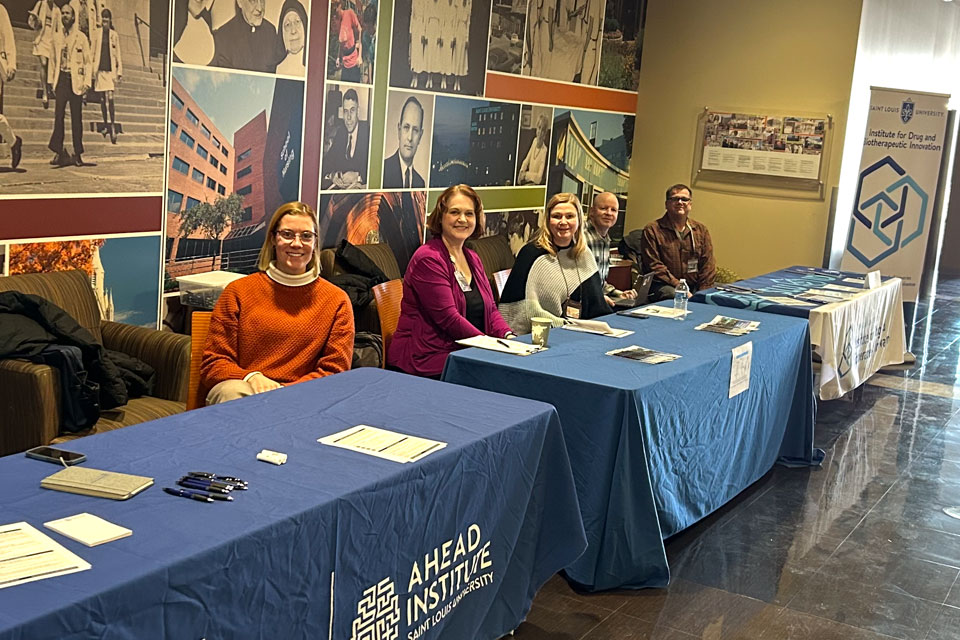School of Medicine Science Day
The Saint Louis University School of Medicine Science Day is an annual event celebrating the research achievements of faculty, residents and students. Hosted by the School of Medicine and the Office of Research, the event fosters scientific collaboration, recognizes excellence and serves as a platform for presenting new discoveries and ongoing projects.
About the School of Medicine Science Day
The fifth annual School of Medicine Science Day will be 11:15 a.m. to 5 p.m. Thursday, Feb. 12, 2026, at the Health Sciences Education Union. The plenary speaker is Medhat Osman, M.D., Ph.D., professor and interim chair of the Department of Radiology. Additional speakers, staff awards, and a poster session and reception will follow. Event registration is not required.
Poster Session
School of Medicine M.D., Ph.D., and M.D./Ph.D. students, as well as postdoctoral fellows are invited to take part in the Science Day poster session. Participants are encouraged to register early by emailing their name, SLU-affiliated PI/mentor name, PI department and submission category (M.D., Ph.D., M.D./Ph.D. or postdoc) to somscienceday@health.slu.edu. Previous award-winning Science Day posters are not eligible.
Abstract submissions should be emailed to somscienceday@health.slu.edu by Jan. 30, 2026, and adhere to the following guidelines:
- Word document with1.5-inch margins and 12-point Calibri font
- Bold abstract title and underlined presenting author
- List of all authors and affiliations, and funding source(s)
The day of the event, 30-by-40-inch posters should be hung by 10 a.m. A limited nuber of easels will be available at 8 a.m.
Prizes will be awarded for the best presentation in each category.
Featured Speakers
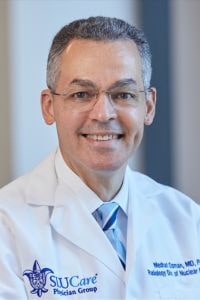
Medhat Osman, M.D., Ph.D., is a tenured professor and director of the Division of Nuclear Medicine and PET/CT in the Department of Radiology. He is board certified in nuclear medicine and cardiac CT.
Osman attended Johns Hopkins University in Baltimore, Maryland, where he earned a Ph.D. and M.S. and completed his nuclear medicine residency, oncology fellowship and PET/CT fellowship.
Osman's research interests include PET/CT, oncology, neurology and cardiology. He has co-authored over 90 peer-reviewed journal articles, six textbook chapters and more than 280 abstracts.
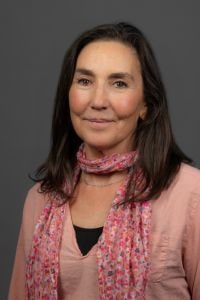
Susana Gonzalo, Ph.D., is a professor in the Department of Biochemistry and Molecular Biology. She earned a B.S. in biochemistry from Universidad Complutense in Madrid, Spain, and a Ph.D. in biochemistry and cell and molecular biology from Washington University School of Medicine.
Gonzalo researches molecular mechanisms that contribute to the genomic instability that drives aging and cancer, focusing on alterations in structural nuclear proteins.
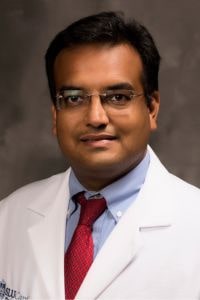
Ajay Jain, M.D., DNB, is the Anthony Rejent Endowed Professor of Pediatrics with a dual appointment in the Department of Pharmacology and Physiology. He serves as chief of the Division of Pediatric Gastroenterology, Hepatology and Nutrition, and the director of Pediatric Liver Transplantation at SSM Health Cardinal Glennon Children's Hospital. Jain is also the immediate past president of the American Society for Parenteral and Enteral Nurtrition (ASPEN), an organization headquartered in Silver Spring, Maryland, that has more than 6,000 members globally and a council member to the European Society for Clinical Nutrition and Metabolism.
Jain's seminal contributions include pioneering work in the field of parenteral nutrition-associated multisystem injury, interrogating pathways, and leading development of novel systems to study pathogenesis, diagnosis and therapeutic approaches for appropriate nutritional delivery and rehabilitation. He is also credited with the development of unbiased discovery platforms and excellence in diagnostic and therapeutic testing of pediatric liver diseases and for pediatric obesity. Jain's research laboratory is funded via the National Institutes of Health (NIH), foundations and industry partners.
Jain has mentored more than 50 students, trainees and faculty. He's been an NIH study section panelist; named a "Best Doctor" for multiple consecutive years; and prominently recognized through more than 75 high-profile, peer-reviewed publications and patents. He's also been honored with multiple national and international invited presentations and awards, including: the recent Grant and John B. Watkins Award for Excellence in Pediatric Gastroenterology, Hepatology and Nutrition from the North American Society for Pediatric Gastroenterology, Hepatology and Nutrition (NASPGHAN); the Best of ASPEN; the Gerard Odell Prize for Excellence in Liver Research from NASPGHAN; and the International Stanley J. Dudrick Award, Recognizing Excellence in Nutrition.
In addition to superlative research, Jain strives to deliver world-class care to his patients with liver and gastrointestinal diseases, including those receiving isolated and multiorgan transplants and those who have short bowel syndrome or nutritional, metabolic or other GI disorders.
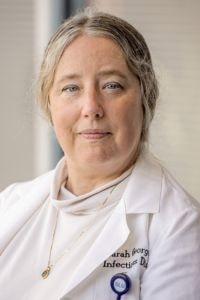
Sarah George, M.D., is a practicing infectious diseases physician and clinical trialist/vaccinologist, and a professor in the Division of Infectious Diseases, Allergy and Immunology. She holds a joint appointment at the St. Louis VA Medical Center and is an adjunct professor in the Department of Molecular Microbiology and Immunology.
George has been the principal investigator on 12 NIH and industry-sponsored clinical trials, conducting phase I-III vaccine and treatment trials on COVID-19, dengue, Zika, yellow fever, influenza, chikungunya, West Nile and pneumococcus. Her NIH and VA-funded laboratory research measures immunity to flavivirus vaccines and infections; she has also worked on HIV/flavivirus coinfections.
George has been the recipient of six VA-funded research awards (career development awards and merit reviews), NIH funding and industry funding. Her current work focuses on comparing durable dengue immunity after vaccination and infection, and Zika immunity after vaccination in flavi-naives and flavi-experienced people. She has over 50 publications, including four invited review articles and five chapters. She has served on 48 NIH, VA and DoD study sections, including as chair or co-chair on 14. She has also served on nine SLU study sections and three national/international vaccine clinical trial safety monitoring committees (SMCs).
George is chair of the St. Louis VA IACUC and a member of the VA Research and Development Committee; the SLU Appointment, Promotion and Tenure Committee; and the Internal Medicine Promotion and Tenure Committee. She has previously served on the Research and Planning Committee, the Research Space Review Committee, and the Internal Medicine Research Committee.

Sandeep Dhindsa, M.D., is a professor in and director of the Division of Endocrinology and Metabolism. He completed medical school in India and an internal medicine residency and endocrinology fellowship in New York before he came to Saint Louis University in 2016.
Dhindsa's primary area of research is hypogonadism in men with obesity and diabetes. He has over 100 publications in peer-reviewed journals.
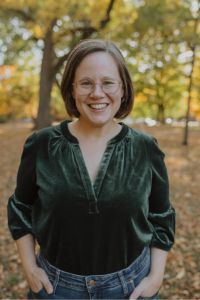
Elise Alspach, Ph.D., is an assistant professor in the Department of Molecular Microbiology and Immunology. She attended Washington University in St. Louis, where she earned a Ph.D. in molecular genetics and genomics, and completed postdoctoral training studying CD4 T cells and their role in tumor rejection.
Alspach's lab investigates how different immunologic environments present in males and females impact tumor evolution and anti-tumor immunity.
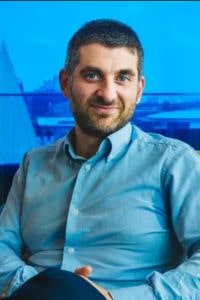
Flavio Esposito, Ph.D., is an associate professor and graduate coordinator in the Department of Computer Science at Saint Louis University. He is director of the Networking Laboratory, and CEO and co-founder of Spaghetti Code Labs, a mobile computer security company with over six million application downloads.
Esposito earned a Ph.D. in computer science from Boston University in 2013. His research includes computer networks, distributed systems, cyber-physical systems and edge/AI computing, with a focus on network programmability, distributed learning and resilient architectures for agriculture, health care and wireless applications.
Esposito is the recipient of multiple NSF awards and industry gifts, including interdisciplinary projects on precision agriculture, secure wireless systems and robotic surgery.
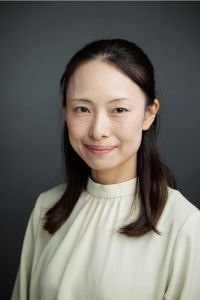
Kana Miyata, M.D., is an associate professor in the Division of Nephrology and Hypertension and the director of the SSM Health/Saint Louis University School of Medicine Nephrology Fellowship Program.
Miyata graduated from Tokyo Medical and Dental University and completed her internal medicine residency in Tokyo and at Mount Sinai Beth Israel in New York. She then completed a clinical nephrology fellowship at Harbor - UCLA Medical Center in California, and a postdoctoral research fellowship in molecular nephrology at the University of Montreal in Canada.
Miyata's research interests include glomerulonephritis and diabetic kidney disease.
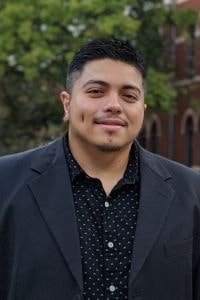
Ian Mitchelle de Vera, Ph.D., is a tenure-track assistant professor and director of the Protein Core Facility in the Department of Pharmacology and Physiology. He earned a B.S. in chemistry and computer engineering and an M.S. in analytical chemistry from the Ateneo de Manila University in Quezon City, Philippines. He went on to earn a Ph.D. in biophysical chemistry from the University of Florida, where he conducted structural and mechanistic studies of HIV-1 protease using NMR and EPR spectroscopy that illuminated drug resistance mechanisms in HIV/AIDS. During his postdoctoral fellowship at Scripps Research Institute-Florida, he conducted biomelecular NMR structural investigations of nuclear receptors while continuing collaborative research on HIV/AIDS therapeutics.
de Vera's solution NMR studies on the orphan nuclear receptor Nurr1 led to the discovery of a novel ligand binding pocket for unsaturated fatty acids that inspired subsequent drug discovery efforts for neurological disorders targeting Nurr1. Furthermore, his work on the intrinsically disordered protein, SRC-2, enabled the first atomic-resolution mapping of this coactivator with the PPARgamma-RXRalpha heterodimer.
Currently, de Vera's University drug discovery lab focuses on the structural, functional and biophysical studies of orphan nuclear receptors — including Nurr1 and the germ cell nuclear factor — for future therapeutic strategies in Alzheimer's disease and germ cell cancers.
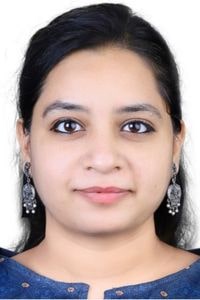
Rajnandani Kashyap, Ph.D. is a postdoctoral fellow who works in the University laboratory of Dr. Edwin Antony, Ph.D., in the Department of Biochemistry and Molecular Biology. Her research focuses on the structural and mechanistic basis of iron-sulfur (Fe-S) cluster enzymes involved in bacteriochlorophyll biosynthesis and human DNA/RNA repair pathways. She integrates anaerobic cryo-electron microscopy, spectroscopy and biochemical assays to capture transient protein conformations and uncover how complex metalloenzymes assemble and function.
Kashyap has contributed to significant discoveries, such as structural insights into the nitrogenase-like enzyme DPOR — including identification of a novel di-copper cluster and structural asymmetry, regulatory mechanisms of nitrogenase and characterization of human Fe-S enzymes. She has been recognized for multiple awards, and her work has been showcased at national and international conferences. She also won the postdoctoral fellow category of the 2025 SOM Science Day poster session.
Schedule of Events
11:15 a.m.
- Lunch: Atrium of the Health Sciences Educational Union
- Welcome: Christine Jacobs, M.D., dean and vice president for medical affairs
- Introduction of plenary speaker: Adriana Montaño, Ph.D., professor and vice dean for research
Noon to 12:30 p.m.
- Medhat Osman, M.D., Ph.D.: "Theranostics Landscape at Saint Louis University Hospital"
12:30-12:45 p.m.
- Susana Gonazalo-Hervas, Ph.D.: "Targeting Inflammation and Genomic Instability in Aging"
12:45-1 p.m.
- Ajay Jain, M.D.: "An Innovative DREAM Promotes Intestinal Rehabilitation and Mitigates Intestinal Failure Associated Liver Disease"
1-1:15 p.m.
- Ian Mitchelle de Vera, Ph.D.: "Unveiling Potential Therapeutics by Targeting Orphan Nuclear Receptors"
1:15-1:30 p.m.
- Break
1:30-1:45 p.m.
- Sandeep Dhindsa, M.D.: "Testosterone Deficiency in Obese Males"
1:45-2 p.m.
- Elise Alspach, Ph.D.: "Sex Differences in the Antitumor Immunity"
2-2:15 p.m.
- Flavio Esposito, Ph.D.: "Artificial Intelligence at the Edge of Laparoscopic Surgery"
2:15-2:30 p.m.
- Break
2:30-2:45 p.m.
- Kana Miyata, M.D.: "SGLT2 Inhibitors' Kidney Protective Mechanisms in Non-Diabetic Glomerular Diseases"
2:45-3 p.m.
- Sarah George, M.D.: "Relative Preservation of Antigen-Specific T Cell Immunity After Vaccination in Obesity"
3-3:15 p.m.
- Rajnandani Kashyap, Ph.D.: "Structural Insights into Nitrogenase Regulation in Methanogens: Unraveling a Super-Complex"
3:15-3:30 p.m.
- Break
3:30-4 p.m.
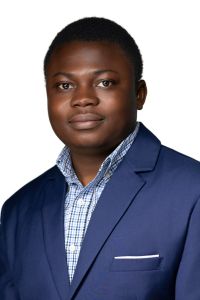
Ezekiel Boampong
Ezekiel Boampong is a grants administrator at the Saint Louis University School of Medicine, where he supports faculty and research teams in securing and managing sponsored funding. His work focuses on ensuring compliance, strengthening research operations and advancing the SOM research mission. Boampong has over seven years of experience in grants and research administration and accounting. He's passionate about supporting impactful scholarships and fostering collaborative research environments.
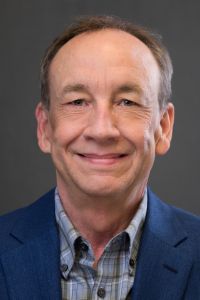
Craig Dedert
Craig Dedert began his career as a transporter at SSM Health Saint Louis University Hospital, during which he pursued general studies through the University's tuition remission program. He later became a unit assistant in the trauma ICU, which motivated him to become a registered nurse. After earning his nursing degree while working full time, Dedert joined the trauma ICU as an RN. In 2009, he returned to the University as a clinical research nurse in the Department of Surgery, and three years ago he joined the Clinical Trials Office. There, he helps to advance the quality and efficiency of clinical research at SLU.
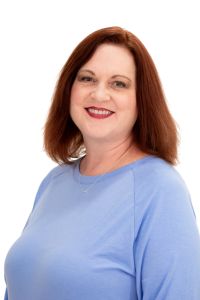
Joy Eslick
Joy Eslick earned a B.S. in Medical Technology from Arkansas State University in 1995. She worked for seven years as a cinical laboratory scientist and trained in flow cytometry techniques at St. Jude Children's Research Hospital in Memphis, Tennessee. In 2002, she became the first full-time employee dedicated to the Saint Louis University Flow Cytometry Research Core Facility in the Department of Molecular Microbiology and Immunology. The core has grown significantly under her guidance, and many graduate students have learned cytometry skills through the training program she helped to implement.
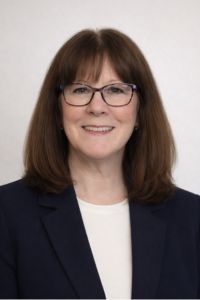
Vasiliki Grammatopoulou
Vasiliki Grammatopoulou is a member of the Advanced Spatial Biology and Research Histology Facility at the Saint Louis University School of Medicine, where she supports diagnostic services and research activities. She maintains quality standards and provides consistent, reliable support to colleagues, students and researchers. Her work supports the laboratory's day-to-day operations and helps ensure that research activities run smoothly within a collaborative, supportive environment.
Grammatopoulou previously spent many years working in clinical cytogenetics, an experience that shaped her approach to accuracy, quality and good laboratory practice.
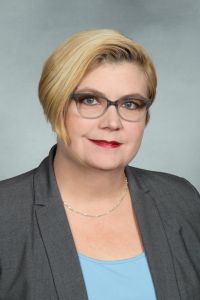
Tammy Grant
Tammy Grant has worked at Saint Louis University for over 34 years. After completing her MBA in 1999, she was promoted to business manager for the Division of Infectious Diseases and Center for Vaccine Development. In summer 2025, her role expanded to include the entire Department of Internal Medicine. Through the years, she's played an instrumental role in many process improvement iniatives in support of the research enterprise.
In Grant's spare time, she loves traveling, crafting and spending time with friends.
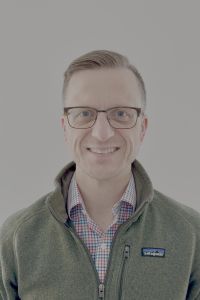
Andrew Maxfield
Andrew Maxfield is a facilities manager who oversees critical vivarium infrastructure for the Department of Comparative Medicine. He's had a career rooted in life sciences and nearly a decade of experience in the preclinical pharmaceutical research sector, which has given him a unique, research-centric perspective on facility operations.
Outside of work, Maxfield is an avid outdoorsman who enjoys cycling, flyfishing and speding time with friends and family.
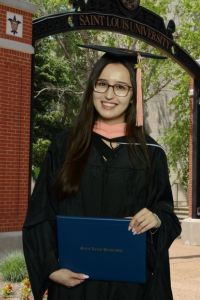
Lisa Sato
Lisa Sato has worked in the Saint Louis University School of Medicine Grant Operation Center for nearly two years. She is a SLU alumna and earned her master's degree in 2024.
Having grown up in Tokyo, Japan, Sato values diverse perspectives and enjoys learning about different cultures. Her favorite part of working at SLU is connecting with people from various backgrounds and contributing to a team that supports meaningful research.
Outside of work, Sato enjoys traveling and watching action movies.
4-5 p.m.
- Reception runs concurrently with poster session
- Presentations from M.D., Ph.D., and M.D./Ph.D. students, and postdoctoral fellows
M.D./Ph.D. Candidates
- Sex differences in immune drivers of solid tumor evolution; Samantha Cooke, Katey
Hunt, Lindsey Khuem, Elise Alspach
Presenter: Samantha Cooke - Evaluating Patient Behavior and Perception of Estrogen-Replacement Therapy as It Affects
Risk of Developing Osteoporosis; Lily E McMorrow
Presenter: Lily E. McMorrow
M.D. Candidates
- Burkitt Lymphoma Case Report; Celine Rochon, Rohan Tripathi, Farzana Hoque
Presenter: Celine Rochon - Addressing Transportation Barriers to Transitional Care Follow-Up; Cathy Chi, Celine
Rochon, Brittany Bartholome, Ashley Wilson Rushing, Saida Kent
Presenter: Cathy Chi
Ph.D. Candidates
- Type 1 Interferon Restricts mRNA Vaccine Efficacy Through Suppression of Antigen Uptake
in cDCs; Tyson A. Lobb, Alexandria Dickson, Wenzheng Guo, Smrithi Beeram, Javier A.
Carrero, Yago Dalben, Richard J. DiPaolo, Elise Alspach, Longping V. Tse, Stephen
T. Ferris
Presenter: Tyson A. Lobb - Insulin signaling in lymphatics associates with rapid mobilization of postprandial
lipids and increased cardiovascular risk; Silvia Gonzalez-Nieves, Simon Guignard,Thi
Nguyen, Ranjay Arul, Daniel J Davis, Clay F Semenkovich, Vincenza Cifarelli
Presenter: Silvia Conzalez-Nieves - Plasmalogen-Dependent Modulation of Ordered Mebrane Domain Controls Neuronal Excitability;
Lucas J Handlin, Soheila Sabouri, Matthew A. Luetzen, Aubin Moutal, David A. Ford,
Gucan Dai
Presenter: Lucas J. Handlin - Unravelling the role of GPR183 in Chemotherapy-induced Neuropathic Pain; Kyle Oberkrom,
Christopher K. Arnatt, Daniela Salvemini
Presenter: Kyle Oberkrom - Sex differences in CD4+ T cell responses against cancer; Katey Hunt, Samantha Cooke,
Emily Ebert, Lindsey Kuehm, Alexander Campbell, Ryan Teague, Michelle Brennan, Melissa
Berrien-Elliott, Stephen Ferris, Elise Alspach
Presenter: Katey Hunt - Irf8 identifies stem-like T cells emerging to drive autoimmunity; Robert Kousnetsov,
Kaitlyn M. Danforth, Daniel Hawiger
Presenter: Kaitlyn M. Danforth - Role of P2Y14R in Paclitaxel-Induced Cognitive Impairment in Rodents; Jenny Brown,
Silvia Squillace, Tim Doyle, Ying Li, Susan Farr, Kenneth Jacobson, Daniela Salvemini
Presenter: Jenny Brown - Pattern recognition receptor signaling initiates self-amplifying responses among dendritic
cells to LNP-RNA vaccination; Jack Evans, Ian Fallahee, Daniel Hawiger
Presenter: Jack Evans - EBV microRNAs in Burkitt Lymphoma; Hanaa Saleh, Chloe Smail, Samuel Arthur, Nick Van
Otterloo, Meggie Lam, Jordan Bass, Dinh Truong Nguyen, Erik Flemington, Nathan Ungerleider
Presenter: Hanaa Saleh - Regulation of TDP-43 aggregation and loss of function; Amanda R. Titus, Lohany D.
Mamede, Patricia M. Passos, Erandika H. Hemamali, Yuna M. Ayala
Presenter: Amanda R. Titus
Postdoctoral Fellows
- Adenosine A3 Receptor Agonism Attenuates Chronic Nitroglycerin-Induced Migraine-like
Trigeminal Hypersensitivity in Mice via T-cells/IL-10 Mediated Response; Stephanie
A. Michalski, Karen Galen, Olivia Vanegas, Spencer Jones, Marcela Romero-Reyes, Kenneth
A. Jacobson, Simon Akerman, Daniela Salvemini
Presenter: Stephanie A. Michalski - Relationships between fetal iron stores, hemoglobin iron, and cord blood ferritin
levels in maternal iron deficiency anemia; Sreenithi Santhakumar, Robert E Fleming
Presenter: Sreenithi Santhakumar - Novel role for the ubiquitin ligase Ube4A in experimental colitis; Simon Guignard,
Silvia Gonzalez-Nieves, Molee Chakraborty, Emily Ebert, Ryan Teague, Aidan McCormac,
David DeBruin, Michelle Brennan, Anutosh Chakraborty, Vincenza Cifarelli
Presenter: Simon Guignard - BDH1-Dependent Ketone Body Metabolism Maintains Müller Cell Homeostasis and Retinal
Function; Richa Garg, Eshani Karmakar, David DeBruin, Shauna Prasad, Ethan Naquin, Michelle Brennan, Niloofar Piri, Oleg Kisselev, Jaya
P. Gnana-Prakasam
Presenter: Richa Garg - S1PR1 as a Shared Therapeutic Target for Comorbid Temporomandibular Disorder and Migraine;
Vanegas, S. O., Galen, K., Salvemini, D.
Presenter: Vanegas, S.O. - A non-canonical STING pathway drives cellular and organismal aging; Lilian Silva,
Rafael Cancado de Faria, Barbara Teodoro-Castro, Elena V. Shashkova, Susana Gonzalo
Presenter: Lilian Silva - Lysophosphatidylserine/GPR34 mediates behavioral hypersensitivities in mice; Janaine
Prata Oliveira, Ying Li, Rachel Schafer, Luigino Giancotti, Timothy Doyle, Susan Farr,
Christopher K Arnatt, John Walker, Daniel Davis, Daniela Salvemini
Presenter: Janaine Prata Oliveira - Systemic Iron Overload Disrupts Ketone Metabolism and Promotes Retinal Degeneration;
Eshani Karmakar, Richa Garg, Ethan Naquin, Jaya-Gnana Prakasam
Presenter: Eshani Karmakar - Modulating prolactin to alleviate Pristane induced Lupus chronic pain in rats; Clémence
Gieré, Niloufarsadat Mirian, Avani Mathur, Monara Angelim, Juliana Maria Navia Pelaez,
Liberty Francois-Moutal, Aubin Moutal
Presenter: Clémence Gieré - Characterization of PALB2 DNA binding domain condensate and role in DNA strand exchange;
Benedict C. Offor, Koroleva Olga, Sergey Korolev
Presenter: Benedict C. Offor - Long non-coding RNA (LINC01200) regulates SPRY4 expression to modulate cellular mechanisms
in hepatocellular carcinoma; Abhinav Bagchi, Ellen Tran, Amogh Chariyamane, Ratna
B. Ray
Presenter: Abhinav Bagchi
